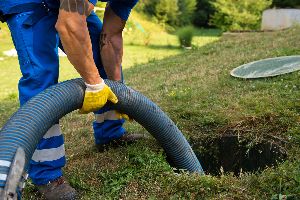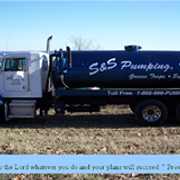
Holding tanks and septic tanks provide convenient on-site waste management for people living outside municipal sewer lines. However, while they perform similar functions, holding tanks have distinct properties. Septic tanks collect waste, treat it, and release treated wastewater into a leach field, where it is cleaned before returning to the water table. On the other hand, a holding tank collects and temporarily stores effluent for removal and transportation to a treatment facility. If you’ve recently moved into a house with a holding tank, here’s what you must know.
What Should Homeowners Know About Septic Holding Tanks?
1. They Must Be Professionally Installed
Although installing holding tanks is not as complex as septic tanks, it is not a DIY job. A licensed contractor must evaluate the site, identify sewage lines, and determine the proper depth for installing the tank and pipes. Without the necessary expertise, knowledge, and tools, installation may be faulty, resulting in leaks or contamination. A contractor will also obtain the permits required to install the tank. This usually requires presenting a site plan, tank design plan, and maintenance plan. Once the tank is installed, you’ll need to await approval from the local health authority before using it.
2. They Need Frequent Pumping

Though holding tanks share similarities with septic tanks, they have differences, too. Holding tanks typically require more frequent pumping than septic tanks. They generally must be pumped about every six to eight weeks, though your specific frequency will depend on the tank's size and degree of usage. Failure to pump on time can cause an overflow, with wastewater backing up into your home's drains. However, unlike septic tanks, most holding tanks have an alarm system that alerts you when it requires pumping.
3. They Require Day-to-Day Maintenance
You can also keep your tank in working order and prolong its lifespan by ensuring only biodegradable toilet paper and human waste goes down the drain. Anything else should go in the garbage bin, including food particles, grease, paper towels, hygiene products, diapers, and tissues. Such items do not break down efficiently and, over time, can cause a blockage. You can also use septic system enzyme treatments to help digest solid waste, making it easier to drain. With regular maintenance and daily care, holding tanks can last for decades.
Keep your holding tank in great condition with routine services from S & S Pumping in Forsyth, MO. This reliable septic service contractor has been part of the community for over 16 years, providing everything from installation and pumping to grease traps and flood water removal. Visit the website for service details, or call (417) 546-2390 to request a free quote.
About the Business
Have a question? Ask the experts!
Send your question

